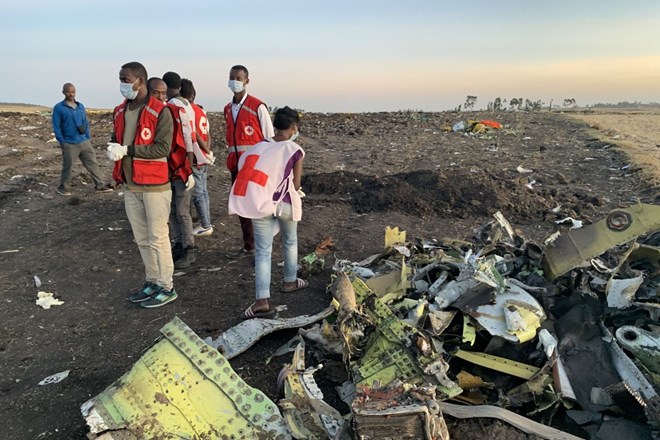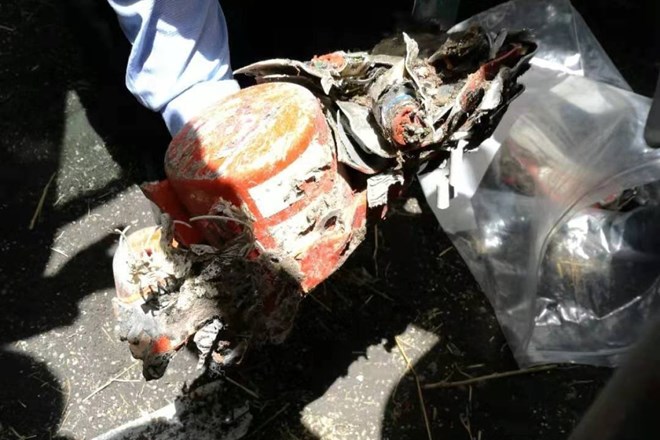
Wednesday March 13, 2019
By Andy Pasztor
Rescuers worked amid the wreckage of Ethiopian Airlines Flight 302 after it crashed Sunday, killing 157 people. PHOTO: XINHUA/ZUMA PRESS
Washington wants NTSB to download data from recorders, while African nation’s officials prefer U.K. experts
U.S. air-safety investigators on Tuesday engaged in intense behind-the-scenes discussions with their Ethiopian counterparts regarding where the black-box recorders found amid the wreckage of Ethiopian Airlines Flight 302 will be downloaded, according to people familiar with the matter.
Parts of the devices were damaged in Sunday’s crash of the Boeing Co. 737 MAX airliner that killed 157 people, these people said, and Ethiopia doesn’t have the required laboratory facilities and experienced staff to ensure crucial data will be recovered. The information is eagerly sought by airlines and regulators world-wide, as more than 30 countries have grounded the latest Boeing models. But the plane maker and the U.S. Federal Aviation Administration have said MAX 737s are safe and shouldn’t be ordered out of service.
After Ethiopian authorities indicated they wanted to send the flight-data and cockpit-voice recorders overseas and preferred the U.K.’s Air Accidents Investigation Branch as an objective outsider, these officials said, U.S. officials privately made a push to have them sent instead to the National Transportation Safety Board’s facilities. As of late Tuesday, they said, the U.S. hadn’t received a final decision.
As in many overseas crash investigations involving a Boeing jet, Ethiopian authorities are eager to demonstrate that U.S. experts won’t have undue influence over the probe or the conclusions eventually announced by local investigators. The same dynamics appeared in the wake of another 737 MAX crash in October, when a Lion Air jet went down shortly after takeoff from Jakarta, killing 189 people.

A recorder from the crashed airliner was seen on Tuesday. Damage to the devices may extend the time it takes to obtain data about the flight. PHOTO: XINHUA/ZUMA PRESS
U.S. officials have told Ethiopian officials that they trust American government experts—and their sophisticated laboratory practices—to provide the most reliable and accurate data downloads, according to the people familiar with the deliberations. The NTSB, which is participating in the overall probe, has declined to discuss its specific responsibilities. An FAA spokesman previously said the agency was poised to assist in the investigation.
Damage to the recorders could extend the time needed to extract usable information about cockpit conversations and how the pilot commanded the flight, though it isn’t clear how extensive the damage is.
High-ranking FAA officials had lengthy closed-door discussions Tuesday focused on mounting international safety concerns about an automated flight-control system on 737 MAX airplanes, according to a person familiar with matter. The FAA’s leadership also weighed in about handling of the recorders.
Tuesday afternoon, Acting FAA Administrator Daniel Elwell issued a statement reiterating the agency’s position that grounding the planes is unwarranted. “The FAA continues to review extensively all available data” about the safety of 737 MAX jets, the statement said, adding that so far “our review shows no systemic performance issues and provides no basis to order grounding the aircraft.”
Mr. Elwell said if the Ethiopian Airlines recorders provide information challenging the airworthiness of the planes, “the FAA will take immediate and appropriate action.”
The article is republished from The Wall Street Journal. Read article here.